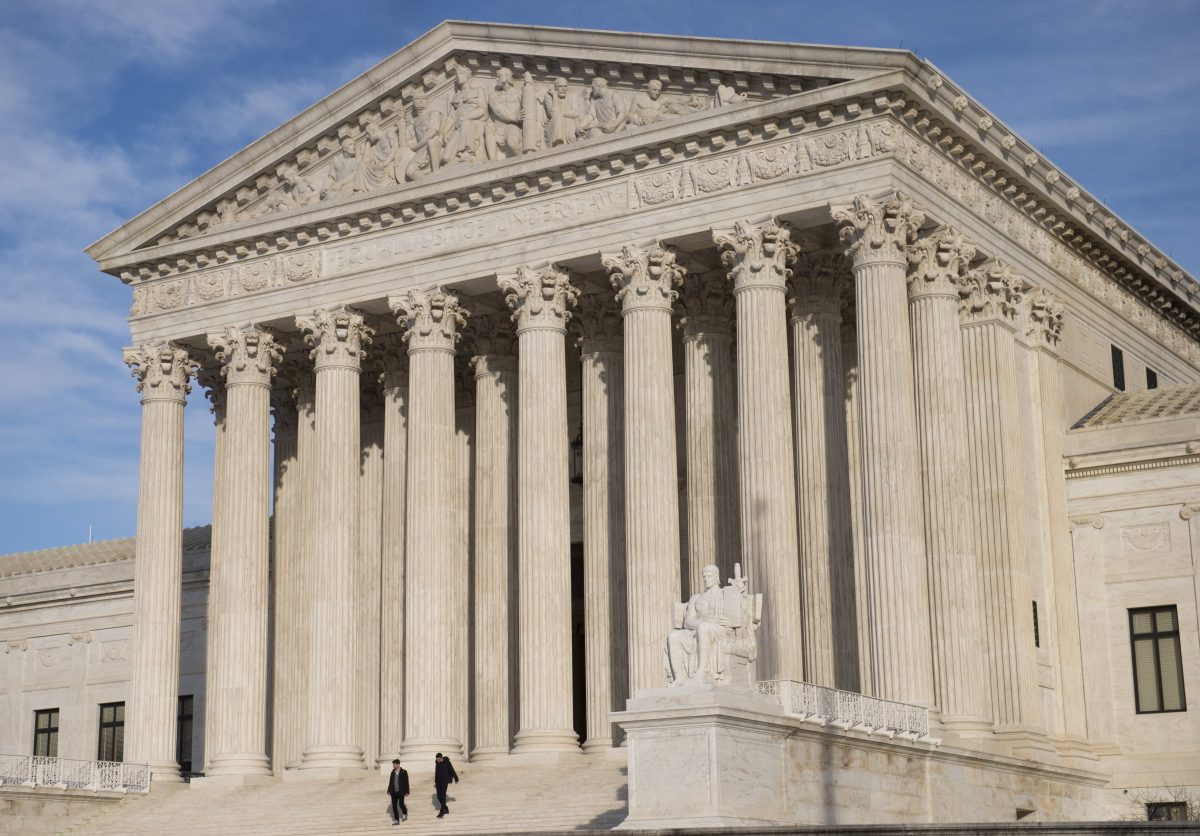
The Supreme Court on Monday unanimously sided with the Trump administration’s request to hear a case involving an immigrant teenager’s right to obtain an abortion while in custody of federal immigration officials. But that’s about as much as could be said. This ruling isn’t exactly a victory for the Trump administration.
The background story: A minor known as Jane Doe attempted to cross the U.S.-Mexico border when she was eight weeks pregnant. After being intercepted by immigration officials, Doe was placed with the Office of Refugee Resettlement (ORR). Authorities performed an initial medical exam and determined that Doe was pregnant. In turn, she asked for an abortion but was denied by the Trump administration. Then the lawyers got involved.
Doe’s case was eventually picked up by the American Civil Liberties Union as a putative class action filed on behalf of Doe and “all other pregnant unaccompanied minors in ORR custody” in order to protest against (and theoretically overturn) ORR’s abortion policy. The respondent, Rochelle Garza, had earlier assumed the role of Doe’s guardian ad litem.
The young woman at the center of the case was not requesting government funds for her abortion. In fact, she had already complied with Texas law and had a judge in the Lone Star State sign off on her abortion request. The Trump administration initially argued that because Doe had attempted to enter the country illegally, she was not afforded constitutional rights. That argument shocked the judiciary and was promptly rubbished and abandoned.
An additional court decision came down in favor of Doe. U.S. District Judge Tanya Chutkan issued an order demanding that the Trump administration “promptly and without delay” allow the 17-year-old her constitutional right to an abortion. Then, the government filed another timely appeal, this time arguing the actual law and Constitution in line with abortion jurisprudence.
The administration’s second major argument was that ORR’s refusal to “facilitate” Doe’s abortion, “places no obstacle in her path, much less a significant one, as is required to constitute an undue burden. The government is merely refusing to exercise its custodial responsibilities over unaccompanied minors by taking affirmative steps to proactively assist or enable her in such an endeavor, consistent with its legitimate interest in promoting fetal life and childbirth over abortion.”
This argument bought the government some time but eventually failed as well. The legal wrangling continued and Garza/Doe sought an amended restraining order against the government. This time, they requested that the government make Doe available, “in order to obtain the counseling required by [Texas] state law and to obtain the abortion procedure.”
Garza’s amended language ultimately served to confuse the Trump administration’s attorneys. The government prepared to appeal directly to the Supreme Court on October 25. But then, overnight, the circumstances at the abortion clinic changed. Instead of just going in for counseling, Doe was able to obtain her abortion–before the Trump administration even knew about it.
The court’s unanimous decision notes:
The doctor who had performed Doe’s earlier counseling was available to per-form the abortion after all and the 7:30 a.m. appointment was moved to 4:15 a.m. At 10 a.m., Garza’s lawyers in-formed the Government that Doe “had the abortion this morning.” The abortion rendered the relevant claim moot, so the Government did not file its emergency stay application.
(Whether this confusion was intentional or not is another story and the Trump administration certainly complained to the Supreme Court about alleged unethical behavior on behalf of the Doe-Garza team. In the end, however, while remarking on the seriousness of attorney obligations and the accusations, the Supreme Court determined that it was simply a matter of miscommunication.)
The rest of the decision turns to a discussion of whether the Supreme Court has the authority to weigh in on cases that have turned moot. After determining that they do, the Court notes, citing another case, “It would certainly be a strange doctrine that would permit a plaintiff to obtain a favorable judgment, take voluntary action that moots the dispute, and then retain the benefit of the judgment.”
In sum, this decision might superficially look like a “win” for the Trump administration on paper. But the Court makes pains to note that this case is an exceptionally fact-specific oddity of sorts. The decision points out, “[t]he unique circumstances of this case,” which aren’t likely to bode well for its application to other detained immigrants seeking abortions. That is, while the lower court’s decision–in favor of Garza and Doe–was vacated, there’s not much precedential value here.
On the facts of the case, the administration lost: Doe had her abortion. In the briefings, Trump’s attorneys were upset: they complained about being hoodwinked. And, as far as jurisprudence goes, the facts of this case are so unusual that this decision isn’t likely to influence much of anything going forward.
[image via SAUL LOEB/AFP/Getty Images]